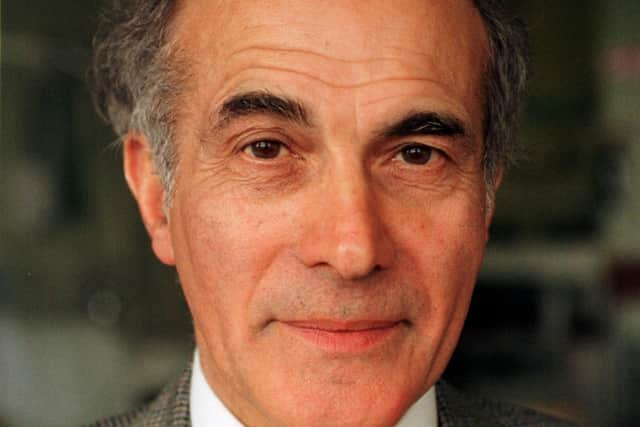Dr Hector Chawla: Why destroy a centre of excellence for a minimal saving?
and live on Freeview channel 276
To replace them with an untested theoretical model is hazardous. Not to replace them at all is reckless – but that is what the Scottish Government proposes. The promised new hospital at Little France is to be cancelled and NHS Lothian has been ordered to see what it can do with existing buildings elsewhere.
We are asked to believe that a new surgical facility for some branches of surgery at Livingston, yet to be built, can be used for complex ophthalmic procedures as well, in a way as yet unexplained.
We are now told that a “distributed regional” rather than a centralised model is the way forward. Unfortunately, it is the way backward because a quality eye service requires more, not less centralisation.


Advertisement
Hide AdAdvertisement
Hide AdIn the Edinburgh Eye Pavilion, there are nine sub-speciality interests all dependent on more than 200 doctors, nurses and technicians. They run the service of today and teach the new staff for the service of tomorrow.
Expertise shared with each other and concentrated in one building is how the Edinburgh centre has acquired its international reputation. And it is from
there that consultants serve the Borders and junior staff rotate to Fife.
In the past, equipment was relatively simple and all eye surgeons would undertake all kinds of eye surgery. Those days are now gone but the new loose proposals seem to have forgotten that. The closely integrated staff work with increasingly complex equipment that can’t just be trundled about in a van.
Advertisement
Hide AdAdvertisement
Hide AdNow the regional part is to be based on the increased use of community optometrists, something touted as an innovation, but in Edinburgh, that is already what happens because it was started here. Their special knowledge is, very sensibly, employed in the management of stable conditions and some external eye disorders, within their scope of practice.
Unfortunately, the belief that the deployment of optometrists will eliminate the need for an eye hospital is wrong. It will increase the need because the very existence of their practice will produce more patients who require the services of the full ophthalmic system.
Value for money of course, must be a top priority. Yet if the Edinburgh Eye Pavilion, with its annual 84,000 outpatients , were a business, the present arrangement with its economy of resources would surely be the chosen model. It would also be decided that trying to refurbish a building, already condemned as unfit for purpose, was not the best use of limited public funds.
How might the running costs of fragmentation over ten years measure against the single capital cost of a new eye hospital? By what measure can the cost in endangered vision be morally gauged?
Advertisement
Hide AdAdvertisement
Hide AdThe Edinburgh Eye Pavilion is the centre of choice for trainees from all over the United Kingdom. Consultants want to work here because of its reputation and patients trust it for the same reason.
It is a well tried model. It is cost effective in practice. The alternative is unproven. It is also unplanned.
Why destroy a centre of excellence for a one off saving of £45m which is of no great significance against the overall Scottish Governmental spending?
* Dr Chawla was director of the Princess Alexandra Eye Pavilion for ten years until 2010.
A message from the Editor:
Thank you for reading this article. We're more reliant on your support than ever as the shift in consumer habits brought about by coronavirus impacts our advertisers.
If you haven't already, please consider supporting our trusted, fact-checked journalism by taking out a digital subscription.
Comment Guidelines
National World encourages reader discussion on our stories. User feedback, insights and back-and-forth exchanges add a rich layer of context to reporting. Please review our Community Guidelines before commenting.